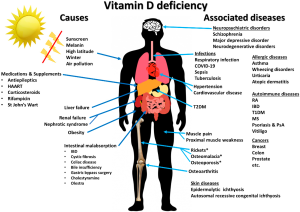
Micronutrients are essential components of a healthy diet that are required in small amounts to maintain optimal health and wellness
They include vitamins, minerals, and other vital nutrients that are necessary for various bodily functions such as growth, metabolism, and immune system function. While macronutrients such as carbohydrates, proteins, and fats are important, micronutrients play a critical role in maintaining overall health and wellness.
One of the most critical functions of micronutrients is their role in maintaining the body’s metabolism. Micronutrients such as vitamins B, C, and E are essential for energy production, while minerals such as iron, magnesium, and zinc are necessary for enzymatic reactions that convert food into energy. Additionally, micronutrients such as calcium and phosphorus play a vital role in bone formation and maintenance.
Micronutrients are also essential for immune system function. Vitamins A, C, D, and E, as well as minerals such as zinc and selenium, are critical for maintaining immune system health and function. Deficiencies in these micronutrients can lead to impaired immune function, making individuals more susceptible to infections and illnesses.
Another essential function of micronutrients is their role in preventing chronic diseases. Micronutrients such as antioxidants, which include vitamins C, E, and A, help protect cells from oxidative stress and damage, which can contribute to the development of chronic diseases such as cancer, cardiovascular disease, and diabetes. Additionally, several minerals, such as calcium, magnesium, and potassium, have been linked to a reduced risk of hypertension and other chronic diseases.
Despite the critical role that micronutrients play in maintaining overall health and wellness, many individuals fail to consume enough of them in their diets. This is particularly true for those who consume highly processed and refined foods, which are often stripped of essential micronutrients. As a result, micronutrient deficiencies are prevalent worldwide and can have significant health consequences.
To ensure that you are getting adequate micronutrients in your diet, it is essential to consume a balanced and varied diet that includes a wide variety of fruits, vegetables, whole grains, lean proteins, and healthy fats. Additionally, taking a daily multivitamin supplement can help fill any nutritional gaps in your diet and ensure that you are meeting your daily micronutrient needs.
In conclusion, micronutrients play a crucial role in maintaining overall health and wellness. They are necessary for essential bodily functions, immune system function, and disease prevention. To ensure that you are getting adequate micronutrients in your diet, focus on consuming a balanced and varied diet that includes a wide variety of nutrient-dense foods, and consider taking a daily multivitamin supplement. By prioritizing micronutrient intake, you can optimize your health and wellness and reduce your risk of chronic diseases.


